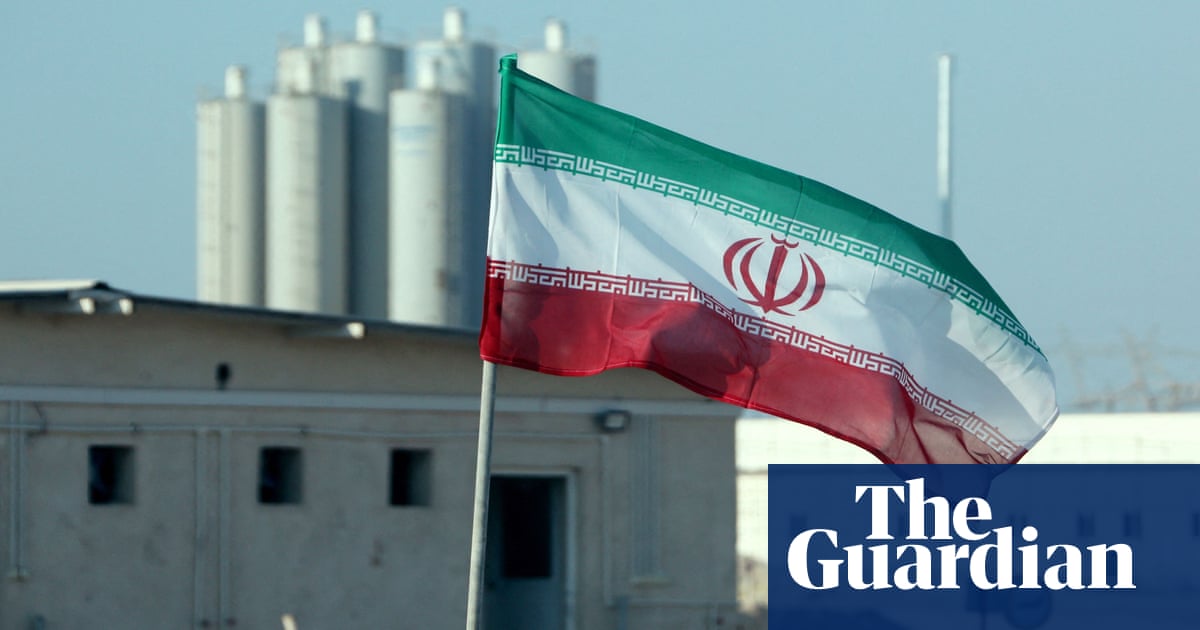Iran is on the brink of rejecting US proposals on the future of its nuclear programme after the US draft insisted that Tehran would have to suspend the enrichment of uranium insideIranand set out no clear route map for lifting US economic sanctions.
The US proposals were the first in written form since five rounds of indirect talks started, but Iranian diplomatic sources said the US proposals gave no ground on Iran’s demand to continue to enrich uranium inside the country.
“Iran is drafting a negative response to the US proposal, which could be interpreted as a rejection of the US offer,” a senior Iranian diplomat told Reuters.
The US proposal for a new nuclear deal was presented to Iran on Saturday by the Omani foreign minister, Sayyid Badr Albusaidi, who was on a short visit to Tehran and has been mediating talks between Tehran and Washington.
A complete breakdown in the talks would trigger European moves to impose heavier UN sanctions on Iran and a possible joint US-Israeli strike on Iran’s nuclear sites. That could see Iran in turn launch reprisals.
Faced by such a catastrophe, Iran is likely to temper its response to the US plans so that further talks are possible.
The best compromise available would be a US statement that Iran in principle is permitted to enrich uranium but in practice will not do so, at least inside Iran, for an indefinite period.
The US has said it would allow Iran to join a Middle East consortium to enrich uranium,in conjunction with Saudi Arabia, but this could not take place on Iranian soil. A regional consortium for a civil nuclear program would require huge trust between the countries involved and continued external inspection.
At one point it seemed that Donald Trump would allow Iranian enrichment at low levels so long as US inspectors – not just UN teams – were given access to Iran’s nuclear sites, but that solution seems to be fading.
But on Monday evening, the US president said Iran would not be allowed to enrich any uranium under a possible nuclear deal.
“Under our potential Agreement – WE WILL NOT ALLOW ANY ENRICHMENT OF URANIUM!” Trump said on social media, in response to a report in the Axios news outlet that said his administration’s offer would let Tehran enrich some of the nuclear fuel.
Speaking on a visit to Cairo, the Iranian foreign minister Abbas Araghchi revealed little about the progress of the talks, but said Iran would be replying to the US proposals shortly.
Iran did suspend enrichment for two years from November 2003, but in 2005 it rejected the European plan to use imported low-enriched nuclear fuel for its reactors.
In Egypt Araghchi met Raphael Grossi, the director of the UN nuclear inspectorate the International Atomic Energy Agency (IAEA), expressing his displeasure at a draft IAEA report prepared for the agency’s next board meeting that highlights how Iran has continued to enrich uranium at high levels of purity contrary to the agreement the nation signed in 2015.
France, Germany and the UK intend to use the report to press for a board vote leading to UN sanctions being reimposed in September.
The Iranians claim the draft IAEA report contains nothing surprising or new, but accuse the west of pressurising the inspectorate to develop an increasingly propagandistic tone.
The report found that Iran carried out secret nuclear activities with material not declared to the UN nuclear watchdog at three locations that have long been under investigation.
Araghchi said: “western pressures should not affect the IAEA and the IAEA must maintain its independent and technical identity. Some countries want to put pressure on Iran through the IAEA, and we hope that the IAEA will not fall into this trap.”
He added: “Iran’s enrichment is completely peaceful and a scientific achievement that we have achieved through our scientists. The Iranian nation has paid heavy prices to achieve this achievement, andthe blood of a number of our nuclear scientists has been shed for this issue.
“If the goal of the negotiations is to ensure that Iran does not seek to obtain nuclear weapons, we can reach an agreement in this regard, but if unacceptable and unrealistic goals are pursued in this regard and the goal is to deprive Iran of peaceful nuclear activities, there will definitely be no agreement.”
Ebrahim Azizi, the head of the Iranian parliament’s national security and foreign policy commission, said: “If a proposal is based on ignoring the principle of enrichment, it is not at all presentable, not acceptable, not admissible, not worthy of attention, and not negotiable.”
